Nicolas Poussin
 From Conservapedia
From Conservapedia Nicolas Poussin (1594 - 1665) was a French Baroque painter. He is considered the greatest French artist of the 17th century and one of the founders of European classicism. In the late 1640s and early 1650s, at the height of his artistic maturity, Nicolas Poussin turned from historical narrative to landscape painting. He came later in life to believe that landscapes could express the same powerful emotions as the human dramas depicted in history paintings. From that point on, he worked to elevate landscape to a higher status. [1] [2]
Poussin used a special technique to perfect the layout of his paintings. He would place small wax or clay models draped in scraps of cloth in a perspective box to represent his figures, then moved them around until he was happy with their respective positions. He could change the lighting by moving the sides of the box to let in more or less light. [3]
The classical landscape was perfected by French artists Nicolas Poussin and Claude Lorrain. In "Landscape with a Calm" 1650 - 1651, Poussin does not illustrate a story but rather evokes a mood. The ordered composition and clear, golden light contribute to A Calm's utter tranquility, while glowing, gem-like colors and fluid paint strokes enliven this scene of benevolent nature. [4]
Winter. The Deluge.
The Museo del Prado possesses an important collection of paintings by Nicolas Poussin. Mythological and religious scenes and landscapes such as Parnassus, The Triumph of David, Landscape with Buildings and Landscape with Saint Jerome can be numbered among Poussin’s finest works. [5]
Les Bergers d'Arcadie.
See also[edit]
External links[edit]
- Nicolas Poussin Olga's Gallery.
- Nicolas Poussin
Categories: [French Painters]
↧ Download as ZWI file | Last modified: 02/18/2023 05:32:55 | 14 views
☰ Source: https://www.conservapedia.com/Nicolas_Poussin | License: CC BY-SA 3.0
 ZWI signed:
ZWI signed: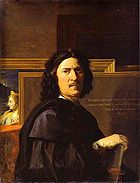
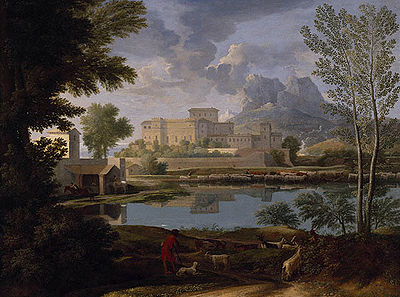
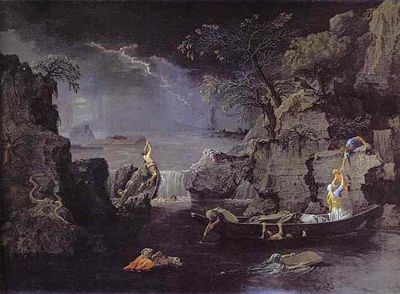
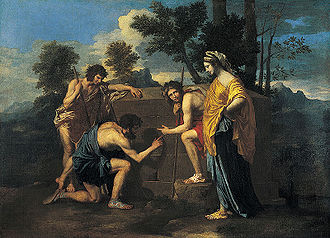
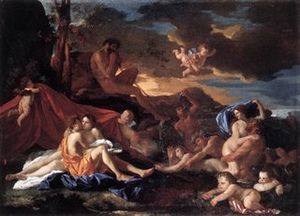
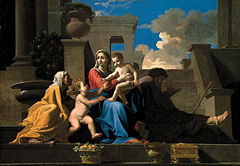
 KSF
KSF